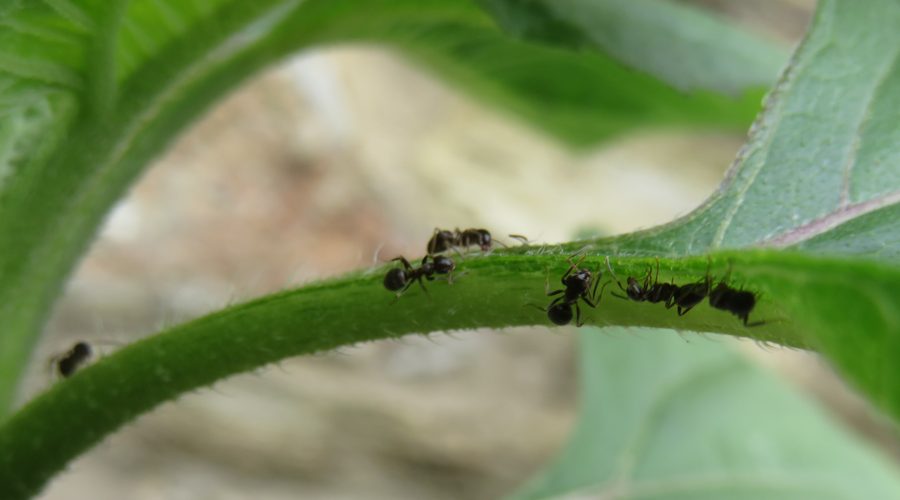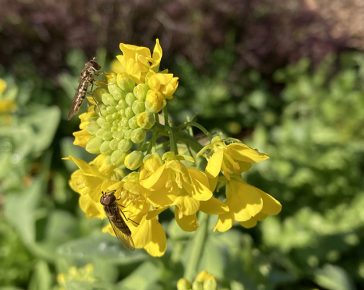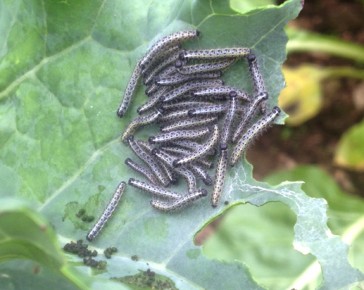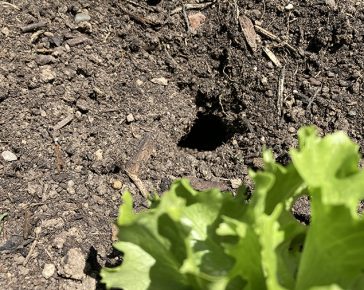Dry weather is likely to have provided the perfect conditions for ants to really get to work this season. For the most part, they do little harm, but do be aware of how they ‘farm’ aphids which they do in order to feed on the honeydew that the aphids secrete. Ants can also occasionally damage the roots of some crops if their nest and tunnels get in the way, so if you have a nest right in the middle of a raised bed, it is not ideal.
Dealing with Ants
If they’re not causing any damage, then you can happily leave ants to it. However, if they are causing a problem, here are our three recommendations:
- Keep beds well watered – ants prefer dry loose soil, so will naturally steer away from well watered crops and moist soil.
- To deter ants from crawling all over your beds, make a peppermint spray by adding a few drops of peppermint oil to a squirty bottle of water and spraying the solution thoroughly along the edges of the beds. You’ll need to do this fairly often for it to be effective.
- Get nature to do its thing by attracting lots of ant-eating wrens, sparrows and robins into the garden. As well as bird feeders, you can dig a few holes and the robins will soon find you, the worms and the ants!
Dealing with Aphids
If you find that ants have been farming aphids, you will need to do something about the aphids as well, as they can cause a fair bit of damage to vegetable plants. You may notice yellow or pale leaves, distorted growth and a general stickiness as the aphids secrete honeydew. Follow the three steps below:
- Give any aphid-ridden plants a strong blast of water with the garden hose to wash them off. Do this once or twice a day until the plant is aphid free. If hosepipe bans are in place, you may need to pinch off parts of the plant that have the aphid colonies and remove them instead.
- Once your plants are aphid-free, you can help prevent them from returning by placing sticky, yellow things around crops. A vaseline covered yellow bucket balancing upside down on a bamboo cane will work wonders…the aphids are attracted to it and will land on the bucket and get stuck there.
- Use a garlic spray – peel some garlic cloves, slice them and boil them in water for 10 mins. Let the water cool before removing the garlic pieces. Add a little organic soap to the garlic water and spray it on the leaves and stems of vulnerable plants once or twice a week to help keep them aphid-free.




